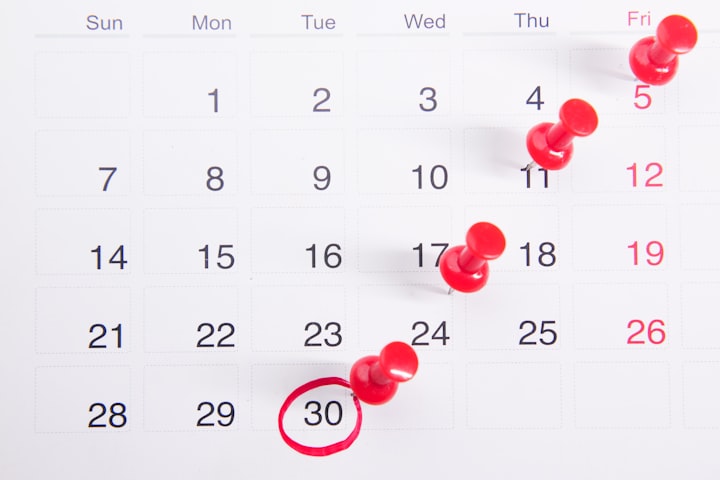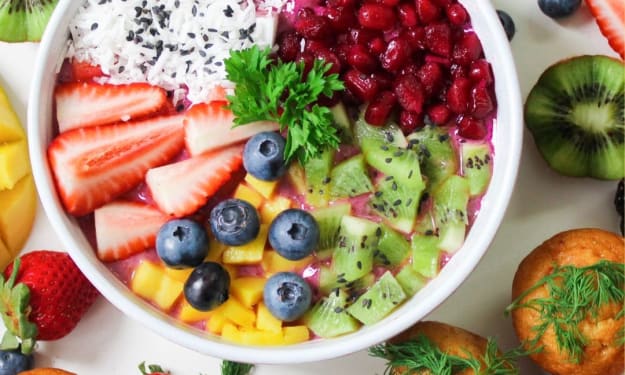What I’ve Learned From Going 30 Days Sober
Follow my 100 days sober challenge journey!

As you saw in my previous article, there is a multitude of reasons behind why so many of us are becoming sober curious. After a failed dry January, I decided to try again but really challenge myself this time. Like a mythical quest, I had heard of the hundred days sober challenge. A seemingly insurmountable beast that I’d not known anyone personally to have overcome. Well, I thought I couldn’t fast for 3 days and yet if you followed that challenge, I in fact could.
I’ve now successfully hit the 30-day marker in my 100 days. Many people have managed a month. Supposedly, the first 30 days are the hardest in this challenge. I’ve had a number of personal insights during this time. This first post in the series will reflect on things I’ve learned overall. There will also be a “sober diaries” post revealing thoughts and realisations jotted down and reflected on as the challenge progressed. Follow and stay tuned, if you find that kind of active observation more inspiring.

For anyone else who thinks they might attempt this challenge, delving into sober literature is certainly a great help. In my journey I came across a brilliant book I’d highly recommend that, though written from the point of view of an alcoholic is equally helpful for the sober curious as well as showing how easy it is to fall into addiction. Because alcohol is an addictive substance, thought it’s not presented to us as one. It’s presented as something you can either handle or you can’t. Something it’s normal to have too much of sometimes. The truth is anyone can cumulatively come to some point of reliance or addiction to alcohol once it becomes part of their routine. It’s a spectrum. You can benefit from taking a break or cutting down, even if you’re quite low on that spectrum.
Here’s the book in question if you want to follow the link:
For those looking to moderate, the following book is also excellent and it does actually advise a period of 30 days sober to begin with, so is relevant here:
So what Happened? What did I learn 30 days in?
You Have More Energy

The change in energy levels has been crazy. I didn’t realise how even casual drinking with the odd weekend binge could create such sluggishness. With my ADHD, task paralysis and energy slumps happen, but I found that they were happening less and less. Combined with my improved sleep and taking my medication more regularly, I found my symptoms overall were easier to manage. I was waking up fresher and earlier in the morning. I often get into energy crashes at annoying times, especially when socialising. I was now finding myself more energetic, more excited about DOING things instead of just monging out in front of the telly. Speaking of which…
You Start Noticing Things About The Media

During the first thirty days, a lot of things were triggering for me, in terms of reminding me that I couldn’t have a drink. As a result, I became really aware of just how ingrained images and ideas of drinking were in our media and culture. In so many movies, especially feel good genres like romance and comedy, alcohol was seen as the start of someone having a break through, dealing with emotions, bonding with others, letting their hair down or having an adventure. Alcohol is there in advertisements for holidays. It’s in feel good reels on Instagram for people living their “best life”, or presenting themselves as elegant, cool or luxurious. I realised how much these planted ideas were part of the drinking allure. It was clear how our brains have been culturally conditioned to connect alcohol with fun and frivolity in a context that was not objective, or based in the full reality.
More Time and Productivity

I’ve learned that the amount of time you can reclaim when not drinking is substantial. Firstly, just the act of going to bed earlier and managing to wake up early again whilst actually having had a good night’s sleep, gives you more hours in the day. An evening where I might have enjoyed a drink and zoned out on Netflix, now all of a sudden stretched out with innumerable things I might do. I actually got into reading fiction again, one of my first loves.
Catch ups or social calls tended to last a sensible or intended amount of hours as opposed to me realising it was last orders and we were being kicked out. So perception of time changes, control of time improves and quantity of time to do other things increases. Goes without saying that all of this led to a direct increase in productivity. It’s a simple equation.
Heightened Energy + More Time = Getting Things Done
You Save Money

I did not track my finances for this challenge, but it has been clearly evident that I’ve been spending less and saving more. The wine of an evening or weekend I wasn’t having. The surprisingly small restaurant bill. The amount of groceries I could get whilst spending less. The takeaways I wasn’t having and taxis I didn’t need. It was all adding up.
Socialising Is the Hardest Bit
But Maybe The Most Impactful

I was initially safely out of reach or sight of temptation as I was house and cat sitting alone at the start of this challenge. This was good to ease me in as I knew that socialising would bring out a whole new level of difficulty. Checkout my next article for real life examples of social events and how I handled them. In general this was what I feared the most. It is heavily endorsed and accepted in British culture to use alcohol as a social lubricant. I was however pleasantly surprised by the support I got as well as how I coped.
In the first 30 days, I think it’s important to avoid scenarios where temptation to drink is high and uncomfortable (e.g. a night of clubbing), if you possibly can. Getting past this hurdle, which you can and will if you decide to, is uncomfortable but possibly the most rewarding in terms of the insights it brings.

It can show you which connections you have that are the most genuine. Who you genuinely like to hang out with and what situations you genuinely enjoy. You get to find out or rediscover who you actually, authentically are. Without false confidence you start to build confidence organically. After an evening out you get to enjoy feeling fresh the next day without an empty wallet, a hangover or crippling anxiety. It’s worth the discomfort. I found it to be the most difficult but rewarding experience of the challenge so far.
Growing Your Emotional Resilience

I found that I was having to deal with and face my emotions more.
“Man what a hard day at work, I deserve a glass of wine.”
“Oh my gosh, I don’t know anyone here. Better get some Dutch courage.”
Feelings of discomfort and anxiety, stress, sadness or boredom couldn’t simply be put to one side with a “well deserved” beverage. You have to sit with them. But in doing so you learn to and find it easier to deal with them. You become more emotionally resilient. I realised that sudden feelings of sadness or emptiness were quite possibly suppressed. They were now coming to the surface and I had to work to figure out why and what the cause was. Speaking to friends, family and journalling I would definitely recommend as ways to help you process such emotions.
It’s Easier Not to Drink Than to “Just Have One”

This is an insight I will come to in my sober diaries. I soon realised that compared to previous attempts at moderation, knowing already that I wasn’t going to drink was easier than trying to stick to a certain amount. Trying to make a decision in the moment is almost impossibly difficult. This is also something Catherine Gray touches on in the book I mentioned earlier as to part of why she has chosen the path of total sobriety. I do think that by the end of the challenge new habits would have been ingrained that would make sticking to a certain number of drinks easier. My experience so far has shown me that it would need to be a rule and not a suggestion to be a success.
It’s Important to Take Pleasure In the Little Things

Practising gratitude is an important habit to have. But you‘ll find new ways to appreciate things without anything to water down the perception. Taking more pleasure in the food that you eat, the company you share, in that new book you’ve been meaning to read, in that run you decided to take, in a morning sky. Undertaking any challenge similiar to this will gift you with a fresh perspective on the world.
*
*
I hope you found this article helpful, any hearts appreciated if you did. I would love to hear your thoughts and what other topics you’d like to see me research or write about, so please don’t hesitate to leave a comment.
To see more of my self improvement content, do checkout my medium account:
Other Articles in this Series:
- 100 Days Without Alcohol- Challenge Completed! Pt. 2
- 100 Days Without Alcohol- Challenge Completed! Pt. 1
- What Happened When I Went 60 Days Sober? — Pt.2 The Broken Heart
- What Happened When I Went 60 Days Sober? - Pt. 1
- You Went Sober for 30 Days? Pt. 2
- You Went Sober for 30 Days? Pt. 1
- Why Should You Be Sober Curious?
- Could Alcohol Be Making You Ugly?
About the Creator
Nessy Writer
A freelance writer of all sorts sharing it out with the world. Poetry, prose, advice, reviews and travel writing.
If you want to show your support and see more please follow me on Twitter: Nessywriter






Comments
There are no comments for this story
Be the first to respond and start the conversation.